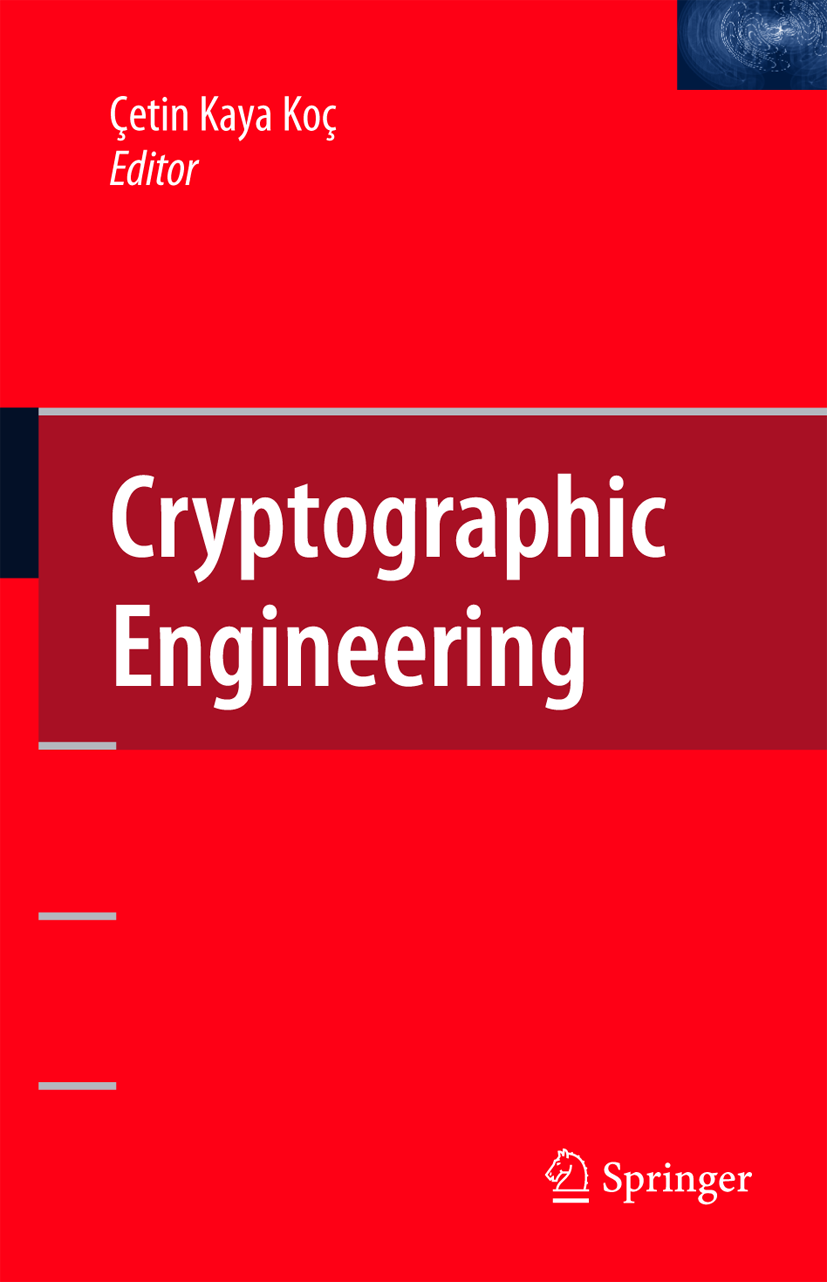CCS 130H Explorations in Cryptography
College of Creative Studies
University of California Santa Barbara
http://koclab.cs.ucsb.edu/teaching/ccs130h
Announcements
- Instructor: Professor Çetin Kaya Koç
→ Koç is pronounced as "Coach"

- Class Schedule and Room: Friday 3:00-5:30pm, CRST 0143
Course Notes for 2018
- Papers, Notes, Slides, and Chapters: 2018
Course Notes and Projects for 2017-2013
- Papers, Notes, Slides, and Chapters: 2017
- Papers, Notes, Slides, and Chapters: 2016
- Papers, Notes, Slides, and Chapters: 2014
- Homework Assignment 1: hw1.html -
due 11pm, Sunday, November 16
- Homework Assignment 2: hw2.html -
due 11pm, Sunday, December 7
- Project idea: Read, understand, implement, demo & critique
this
- Papers, Notes, Slides, and Chapters: 2013
- Elliptic Curve Formulae Database:
URL
- We form project groups and perform research and
development in cryptography.
- This year's subject is "Elliptic Curve Cryptography
and Random Number Generators".
Past Project Topics
See the projects directory: projects
- Placing and detecting hardware Trojans
- Standard curves, their properties, and implementations
- Random curves, generation and counting, and implementations
- Protocols (all of them) and their implementations
- Finite fields, properties and implementations: GF(p), GF(2^k),
and GF(p^k) for small or large p
Course Related Documents
Material from Last Years (Still Relevant)
- Public-Key Cryptography
PDF
- The Status of P Versus NP Problem
PDF
- Elliptic Curve Cryptography
PDF
- ECDSA Short Paper
PDF
- ECDSA Long Paper
PDF
- ECDSA Standard Document
PDF
- Cryptanalysis and Key Length Issues
PDF
- Introduction to DES & AES and Efficient Software Implementations
PDF
- Public-Key Cryptography and Hardware/Software Realizations
PDF
- Random Number Generators for Cryptographic Applications
PDF
- Side-Channel Attacks and Countermeasures
PDF
- Message Authentication and Hash Functions
PDF1
PDF2
- Cryptographic Algorithms and Key Size Issues
PDF
- Secure Hash Standard
PDF
- Differential Cryptanalysis
PDF
Hash Function Project Links
Other Project Topics, Documents, Links, and Groups
- 01 Elliptic curve cryptography; protocols and implementations
- 02 Spectral arithmetic for cryptography; analysis and implementations
- 03 Physical signatures and physically unclonable functions
- 04 Cryptography for tiny devices (RFID and all that)
- 05 Super fast cryptography for large systems (SSL, IPSec)
- 06 Side-channel attacks on general-purpose computers
- 07 True random number generators and their properties
- 08 Quantum random number generators and quantum cryptography
- 09 Embedded cryptography implementations
- 10 Cryptanalyzing things but staying legal if possible
- 11 Past, current and future controversial issues with cryptography
- 12 Projects suggested by our colleagues in the industry
Conferences and Proceedings
Other Links
Description
Cryptography is the art and science of designing encryption algorithms
for the purpose of providing private and authenticated communication.
Once a sub-field of military communications, cryptography has gone
mainstream since 1976 with the invention of public-key cryptography
which allows two parties who previously have never met to establish a
secure channel between them. Techniques, mechanisms, and tools of
cryptography are used today for network security, digital signatures,
and privacy in computer systems ranging from tiny RFID tags to large
servers.
This is a project-oriented course, to explore cryptographic
methods and algorithms such as secret-key and public-key encryption
algorithms, hash functions, digital signatures, deterministic and
true random number generators. We are particularly interested in
actual software and hardware realizations of cryptosystems and their
secure implementations, rather than idealized, mathematical proofs of
security.
Students taking this course will form small teams to work on their
selected projects, while following the lectures given by the Instructor
and at the same time scrutinizing the projects of other teams.
Course Material



- Course notes, papers, and technical reports are distributed in class
and via the web.
Grading Rules
We follow CCS rules.
Prerequisites
Open to all majors in CCS.
Academic
Integrity at UCSB ←
Dr. Çetin Kaya Koç
|



